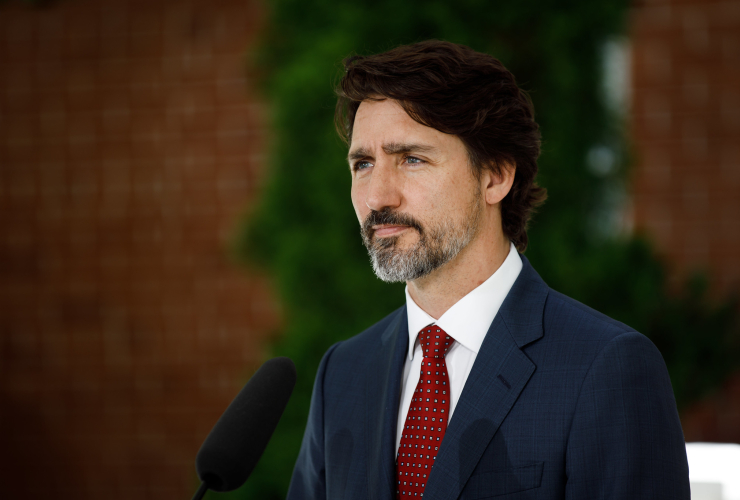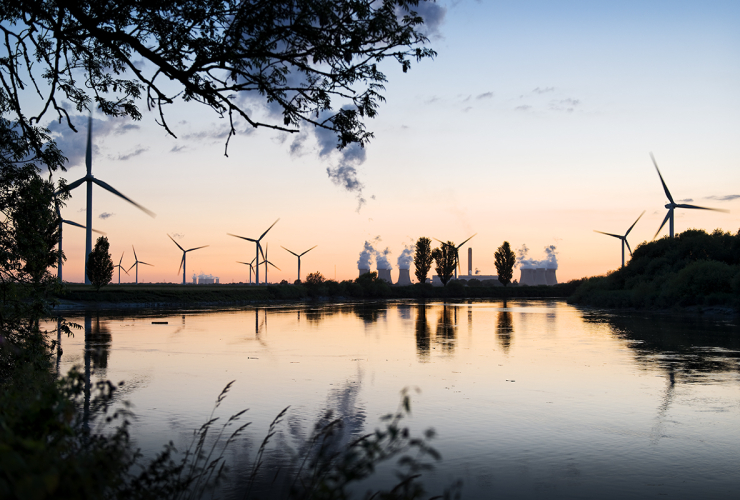When the COVID-19 pandemic struck, Canadians were admirably quick to adopt massive behavioural and policy changes to protect themselves and help flatten the curve of infections.
Income support was rolled out for millions suddenly out of work, social distancing was implemented, streets were closed off to make room for pedestrians and, overnight, workplaces were transformed from physical to virtual.
Elected officials across Canada have, on balance, responded effectively to the pandemic and bolstered trust in science-based public health decisions.
Philanthropic foundations have also adjusted swiftly. Collectively we provide more than $50 million in charitable grants annually and represent approximately $1.5 billion in assets. Across Canada, we are supporting health-care institutions, housing and social services, poverty reduction, decent work, the arts, education, environmental action, tackling racial inequality and assisting a range of other community organizations in our COVID-19 emergency response efforts.
Just like governments, the priorities of foundations have, by necessity, shifted in the short term to target support for pandemic response efforts. In addition, many foundations have made the decision to increase their spending to support communities most affected by the crisis.
However, while responding to the clear and present challenges related to this pandemic, we also cannot lose sight of the broader climate emergency.
Climate change remains the greatest threat to human health in history, and like COVID-19, we must address it directly and vigorously before it spirals further out of control.Like COVID-19, it disproportionately affects racialized, Indigenous, and economically disenfranchised communities.
As Canadians look to recover from the worst of the pandemic, we also have an opportunity to advance climate-related solutions that build up just industries and livelihoods, that generate green jobs as part of a low-carbon economy, that support well-being economies and protect workers’ rights, eradicate poverty, distribute wealth equitably, and uphold human rights. In order to "build back better," these communities need to be at the front and centre of recovery programs.
As leaders of philanthropic foundations, we are asking governments of all levels to invest in short- and long-term recovery efforts that are green, clean, resilient, and just for all.
We only have one Earth and we only have one recovery: This is our chance to tackle climate change.
We believe that Canada’s recovery efforts should take this once-in-a-generation opportunity to align economic growth with climate action. Canada must focus support on action that will move our country forward: housing retrofits that create good local jobs; public transit; electric vehicle infrastructure, including electric buses that are built here in Canada; investments in alternative fuels like green hydrogen and in our competitive clean tech sector; and investments in Indigenous guardians programs, natural climate solutions and natural infrastructure projects that benefit diverse people, communities, biodiversity and the environment.
As our political leaders plan Canada’s economic recovery, they should pay heed to the advice of scientists and public health experts warning of the growing impacts of the climate crisis, just as they have done to flatten the curve of COVID-19 infections.
The European Commission has heeded such advice and has clinched a historic green stimulus package that earmarks billions towards a green economic recovery. Several countries, such as France and Germany, have also recently adopted ambitious green recovery packages that will create even more new green jobs.
Canada has an opportunity to lead in much the same way. We only have one chance at this green recovery, and we urge all levels of government to make this economic recovery one that not only will make us proud and prosperous in the short term, but will keep us healthy and safe for generations to come.
Signatories:
Claire Barcik, Catherine Donnelly Foundation
Andy Chisholm and Laurie Thomson, Chisholm Thomson Family Foundation
Kevin Leonard, Echo Foundation
Sherry Campbell, The Gordon Foundation
Bruce Lourie, Ivey Foundation
Stephen A. Jarislowsky, The Jarislowsky Foundation
Jehad Y. Aliweiwi, Laidlaw Foundation
Marcel Lauzière, Lawson Foundation
Sandy Houston, Metcalf Foundation
Peter Kendall, Schad Foundation
Carolynn Beaty, Sitka Foundation
Eric St-Pierre, Trottier Family Foundation
Thankfully, people are
Thankfully, people are stepping up. Just reading Seth Klein's The Good War, and am glad to see his emphasis on the fact that actions needed for a good recovery can't be voluntary. We need a government strong and visionary enough to mandate policies. Especially pleased with his notion that we need to create public corporations to ensure things get done and to compete with private companies who are equally courageous in the fight. Essential action needs to be enshrined in law to have effect beyond the electoral cycle. Thanks to the National Observer for informing and encouraging commitment to a climate "crisis".
In order to tackle climate
In order to tackle climate change you must first understand the very complex nature of the beast, especially a beast now embedded in a deadly pandemic.
The solutions put forward by the signatories to this article do not reflect the the best thinking of the experts that I have been posting on my website (hundreds of titles since 2010).
The signatories suggest: "align economic growth with climate action"; housing retrofits that create good local jobs; public transit; electric vehicle infrastructure, electric buses; investments in alternative fuels like green hydrogen and clean tech; investments in Indigenous guardians programs; etc.
Compare the signatories' suggestions with just a few of the titles of climate-related articles that I have recently added to my website --
Most G20 countries prioritize fossil fuels over clean energy in post-pandemic recovery plans : Calls for a post-pandemic “green recovery” were derailed by aggressive fossil fuel lobbying July 24, 2020
Transitioning from fossil fuels to renewables will be like going on an energy crash diet: Stan Cox explains : If fossil fuels are rapidly cut in the transition renewables, the pool of energy will shrink, and so will our economic growth. July 20, 2020
Moving the global economy from fossil fuels to a Green Energy future isn’t possible - Gail Tverberg explains : Belief that the world economy can transition to Green Energy is based on ten misunderstandings. July 19, 2020
More evidence and arguments explain why green economic growth won’t be our salvation : Where is the empirical evidence that green growth is compatible with environmental sustainability? July 1, 2020
MUST READ – Dr. Nate Hagens’ masterly synthesis of the Big Picture implications of the coronavirus crisis : Prof. Hagens’ overview captures the complexity of our deadly predicament, a systems synthesis unmatched by other commentators. March 29, 2020
350 Canada’s Green New Deal falls far short of its own goal of listening to “the best available science.” : 350 Canada appears to have limited its “listening” to a very narrow range of “best available science.” January 24, 2020
Why is perpetual economic growth the engine of civilization’s inevitable collapse? Dr Tim Garrett explains : Future growth depends on availability of energy and raw materials on a finite planet – and we’re depleting those resources faster than ever. December 21, 2019
I agree with Mr. White that
I agree with Mr. White that foundations' suggestions reflect amniotic thinking. I further agree that economic growth requires plentiful and cheap energy, and note that the whole transition town movement of maybe 20 years ago anticipated energy descent well before we hit peak oil around 2008.
However most of the quotes above take current economics as a given instead of realizing that the dominant economic model (neo-liberalism) is wildly out of touch with reality. The model assumes our economies can grow forever and we can pollute forever BECAUSE IT HAS TO ASSUME THAT FOR THE MODEL TO BE INTERNALLY CONSISTENT. The Dec 2019 quote alludes to this reality but the collapse is NOT inevitable; we need to change the goal of our civilization from perpetual exponential GDP growth to something more humanistic and sustainable, e.g. meet people's needs within the capacity of the planet. See Donut Economics by Kate Raworth for some readable thoughts on how that would change economics.
Thanks for sharing a variety of ideas on a big subject.






Comments